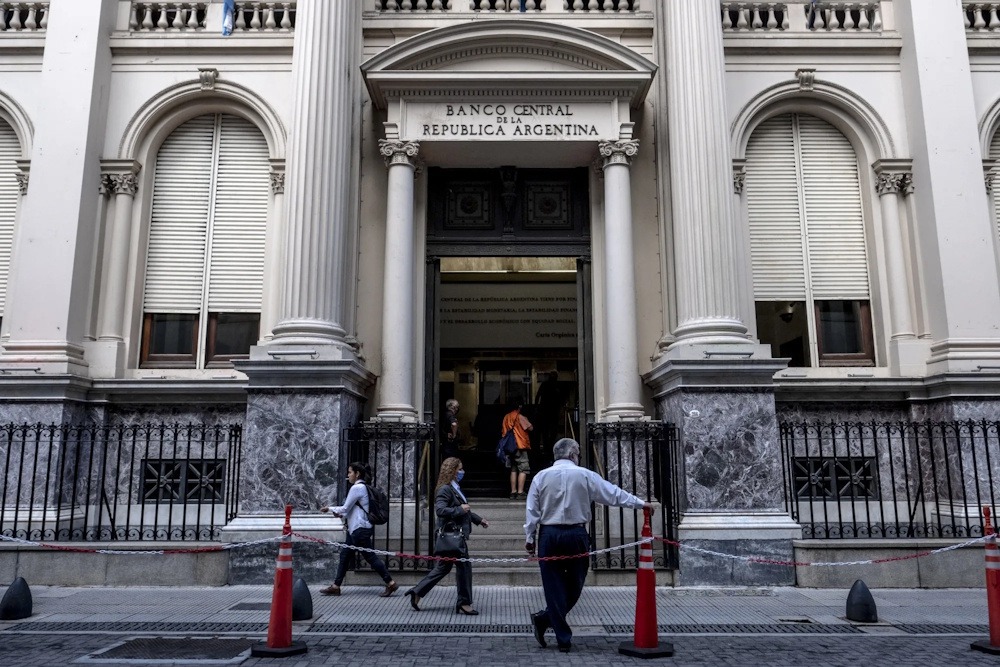Argentina’s Central Bank has reduced its one-day peso repo rate by 300 basis points to 22 percent, as per reports, in the context of market stabilization following President Javier Milei’s midterm election victory. Traders were informed of the new rate on Wednesday via the BYMA, the principal stock exchange in the country, according to sources. The one-day repo has emerged as a crucial instrument in the bank’s policy toolkit as Milei’s administration grapples with ongoing inflationary pressures and fluctuations in the exchange rate. Argentina’s currency appreciated by 0.1 percent on Wednesday, concluding at 1,452 per US dollar, following a 1.9 percent increase in the prior session. The country’s dollar bonds exhibited an upward trend across the curve, with notes maturing in 2035 increasing by 0.8 cent to surpass 71 cents on the dollar, positioning them among the top performers in emerging markets, as indicated by pricing data.
Investor sentiment in Argentina has improved following the significant increase in representation of Milei’s party in Congress, enhancing expectations for further fiscal tightening and pro-market reforms. Peso assets and Argentine risk indicators, which experienced significant volatility following a local election defeat in September, have shown signs of stabilization since the vote on October 26. Policy-makers are implementing rate cuts alongside a reduction in bank reserve requirements to enhance money-market conditions, as part of a comprehensive strategy to stabilize disinflation while maintaining liquidity levels. Recent modifications to banking compliance regulations and a more stable official foreign exchange policy are designed to reduce short-term interest rates while avoiding a resurgence of volatility.
Provinces and companies in Argentina are preparing to access global markets in the upcoming weeks, buoyed by improved sentiment. This development presents an opportunity for debt issuance that may direct essential dollars into the foreign exchange market. Recent inflows of hard currency from corporate bonds are expected to provide immediate support to the weakened peso. The timing is crucial, as agricultural exports have diminished following a surge in sales driven by incentives in September. This has resulted in a shortfall that necessitated intervention from both Milei’s administration and the US Treasury, as Argentines sought refuge in the dollar in anticipation of the midterm elections.
Analysts, however, continue to view the peso as overvalued, and Milei has not signaled any intention to implement significant alterations to the trading bands established in Argentina’s recent agreement with the International Monetary Fund. The band extends in both directions daily, with its lowest threshold recorded at 1,498.5 pesos per dollar on Wednesday. The libertarian leader and Economy Minister Luis Caputo are traveling to the United States this week, where they will engage with a curated assembly of investors and corporate executives in New York on Friday. Milei is scheduled to address a business conference in Miami on Thursday.

